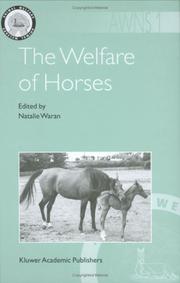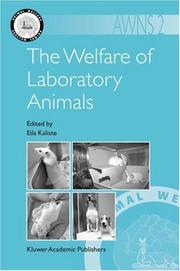| Listing 1 - 4 of 4 |
Sort by
|
Book
ISBN: 9783540851929 9783540851912 Year: 2009 Publisher: Berlin Springer
Abstract | Keywords | Export | Availability | Bookmark
 Loading...
Loading...Choose an application
- Reference Manager
- EndNote
- RefWorks (Direct export to RefWorks)
Covering an area of over 130 million km2 spanning the equator and tropics, the African continent features a spectacular geographic diversity. Consequently, it is characterised by extremely variable climatic, edaphic and ecological conditions, associated with a wide range of natural vegetation and wildlife, as well as human population density, crops and livestock. In this book, Henry Le Houérou presents his bioclimatic and biogeographic classification of Africa. The extensive data provide the basis for comparisons between various African regions, and with regions on other continents such as Latin America or the Indian subcontinent. The results constitute a rational basis for national, regional and sub-regional rural development planning, and for agricultural research dealing with aspects such as plant and animal introductions, the extrapolation or interpolation of experimental or developmental findings, and ecosystems dynamics. Possible problems of applications are also examined. Henry Le Houérou (Montpellier, France) For his substantial contribution to the work of the Intergovernmental Panel on Climate Change (IPCC), he was awarded a share of the Nobel Peace Prize bestowed on the IPCC in 2007 (equally with Al Gore and others).
dierenecologie --- General ecology and biosociology --- ecologie --- systematische plantkunde --- klimatologie --- meteorologie --- Meteorology. Climatology --- biogeografie --- landbouw --- Biogeography --- Agriculture. Animal husbandry. Hunting. Fishery --- Animal ethology and ecology. Sociobiology --- Bioclimatology --- EPUB-LIV-FT LIVECOLO LIVTERRE SPRINGER-B --- Climatology --- climatic factors --- Weather --- climatic zones --- vegetation. --- vegetation --- wild animals --- domestic animals --- Soil degradation --- Desertification. --- Desertification --- resource management --- Africa --- 551.586 --- 574.9 <6> --- 551.586 Biometeorology. Bioclimatology. Agroclimatoloy --- Biometeorology. Bioclimatology. Agroclimatoloy --- Areography (Biology) --- Geographical distribution of animals and plants --- Species --- Species distribution --- Biology --- Geography --- Bioclimatics --- Biometeorology --- Ecology --- 574.9 <6> Biogeography in general. Geographical distribution of organisms--Afrika --- Biogeography in general. Geographical distribution of organisms--Afrika --- Geographical distribution

ISBN: 9781402007668 1402007663 9780306482151 1402061420 0306482150 1280957840 Year: 2002 Publisher: Dordrecht ; Boston : Kluwer Academic Publishers,
Abstract | Keywords | Export | Availability | Bookmark
 Loading...
Loading...Choose an application
- Reference Manager
- EndNote
- RefWorks (Direct export to RefWorks)
Animal welfare is attracting increasing interest worldwide, but particularly from those in developed countries, who now have the knowledge and resources to be able to offer the best management systems for their farm animals, as well as potentially being able to offer plentiful resources for companion, zoo and laboratory animals. The increased attention given to farm animal welfare in the West derives largely from the fact that the relentless pursuit of financial reward and efficiency has led to the development of intensive animal production systems, that challenge the conscience of many consumers in those countries. In developing countries human survival is still a daily uncertainty, so that provision for animal welfare has to be balanced against human welfare. Welfare is usually provided for only if it supports the output of the animal, be it food, work, clothing, sport or companionship. In reality, there are resources for all if they are properly husbanded in both developing and developed countries. The inequitable division of the world’s riches creates physical and psychological poverty for humans and animals alike in all sectors of the world. Livestock are the world’s biggest land user (FAO, 2002) and the population is increasing rapidly to meet the need of an expanding human population. Populations of farm animals managed by humans are therefore increasing worldwide, and there is the tendency to allocate fewer resources to each animal. Increased attention to welfare issues is just as evident for companion, laboratory, wild and zoo animals.
Horses. --- Animal welfare. --- Chevaux --- Animaux --- Protection --- Agriculture. --- Horses --- Animal welfare --- Recreation & Sports --- Zoology - General --- Zoology --- Social Sciences --- Health & Biological Sciences --- 633.5 --- Paarden (lt) --- Veterinary medicine --- Abuse of animals --- Animal cruelty --- Animals --- Animals, Cruelty to --- Animals, Protection of --- Animals, Treatment of --- Cruelty to animals --- Humane treatment of animals --- Kindness to animals --- Mistreatment of animals --- Neglect of animals --- Prevention of cruelty to animals --- Protection of animals --- Treatment of animals --- Welfare, Animal --- Equus caballus --- Farriery --- Hippology --- Horse --- Domestic animals --- Equus --- Livestock --- Pachyderms --- Hinnies --- Mules --- Abuse of --- Social aspects --- Zoology. --- Animal genetics. --- Animal physiology. --- Animal behavior. --- Animal Genetics and Genomics. --- Animal Physiology. --- Behavioral Sciences. --- Animals, Habits and behavior of --- Behavior, Animal --- Ethology --- Animal psychology --- Ethologists --- Psychology, Comparative --- Animal physiology --- Biology --- Anatomy --- Genetics --- Natural history --- Behavior --- Physiology --- Behavioral sciences.
Book
ISBN: 9781402067181 9781402067174 Year: 2008 Publisher: Dordrecht Springer
Abstract | Keywords | Export | Availability | Bookmark
 Loading...
Loading...Choose an application
- Reference Manager
- EndNote
- RefWorks (Direct export to RefWorks)
The book offers a history of the agricultural sciences in Nazi Germany. It analyzes scientific practice under the Nazi regime, Nazi agricultural policy and autarkic strategies as well as expansion policy in Eastern Europe. It also offers new insights into the Auschwitz concentration camp. It outlines the Nazi's comprehensive nutritional and agricultural research program intended to prepare Germany for war by raising productivity through scientific means, researching the relation between nutrition and performance at the edge of starvation, and restructuring the agricultural economy of the continent. The book reveals the relation between science and power in Nazi Germany beyond the usual dichotomy that paints scientists in Nazi Germany either as victims of oppression or as sadistic beasts. It shows the involvement of a high ranking scientific elite in the Nazi regime of occupation and looting of cultural goods in the occupied eastern territories - largely for the sake of their own careers. The main audience the book addresses are students of history and the history of science, and anyone interested in the history of Nazi Germany.
History --- Pure sciences. Natural sciences (general) --- Animal physiology. Animal biophysics --- systematische plantkunde --- Plant physiology. Plant biophysics --- zoölogie --- geschiedenis --- landbouw --- fysiologie --- wetenschapsgeschiedenis --- Agriculture. Animal husbandry. Hunting. Fishery --- Philosophy of science --- anno 1930-1939 --- anno 1940-1949 --- Germany --- Agriculture --- Animal breeding --- National socialism and science --- Plant breeding --- Science and state --- Science and national socialism --- Science --- Domestic animals --- Breeding --- Farming --- Husbandry --- Industrial arts --- Life sciences --- Food supply --- Land use, Rural --- Crops --- Research&delete& --- Kaiser Wilhelm-Gesellschaft zur Förderung der Wissenschaften. --- Kaizā Uiruherumu Gakujutsu Shinkō Kyōkai --- Kaiser-Wilhelm-Gesellschaft --- Kaizā Viruherumu Kagaku Shinkō Kyōkai --- Kaiser-Wilhelm Institute --- Kaiser Wilhelm Society --- KWG --- K.W.G. --- KWS --- K.W.S. --- Max-Planck-Gesellschaft zur Förderung der Wissenschaften --- Research

ISBN: 9781402022708 1402022700 9781402022715 9781402061363 1402061366 9786610852390 1280852399 1402022719 Year: 2004 Volume: 2 Publisher: Dordrecht : Springer Netherlands : Imprint: Springer,
Abstract | Keywords | Export | Availability | Bookmark
 Loading...
Loading...Choose an application
- Reference Manager
- EndNote
- RefWorks (Direct export to RefWorks)
Animal welfare is attracting increasing interest worldwide, but particularly from those in developed countries, who now have the knowledge and resources to be able to offer the b est management systems for their farm animals, as well as potentially being able to offer plentiful resources for companion, zoo and laboratory animals. The increased attention given to animal welfare in the West derives la rgely from the fact that the relentless pursuit of financial reward and efficiency has lead to the development of intensive animal production systems that offend the conscience of many consumers in those countries. In devel oping countries, human survival is still a daily uncertainty, so that provision fo r animal welfare has to be balanced against human welfare. Welfare is usua lly provided for only if it supports the output of the animal, be it food, work, clothing, sport or companionship. In reality there are resources for all if they are properly husbanded in both developing and developed countries. The inequitable division of the world’s riches creates physical and psychological poverty for humans and animals alike in all sectors of the world. Liv estock are the world’s biggest land user (FAO, 2002) and the population, particularly of monogastric animals, is increasing rapidly to meet the need of an expanding human population. Populations of animals managed by humans are therefore increasing worldwide, so there is the tendency to allocate fewer resources to each one.
Animal Welfare. --- Animals, Laboratory. --- Animal welfare. --- Laboratory animals. --- Animaux --- Animaux de laboratoire --- Protection --- Agriculture. --- Laboratory animals --- Animal welfare --- Animal Welfare --- Animals, Laboratory --- Animal Population Groups --- Social Control, Formal --- Sociology --- Animals --- Social Sciences --- Eukaryota --- Anthropology, Education, Sociology and Social Phenomena --- Organisms --- Zoology - General --- Social Welfare & Social Work - General --- Animal Sciences --- Zoology --- Agriculture --- Social Welfare & Social Work --- Health & Biological Sciences --- Earth & Environmental Sciences --- Animals, Experimental --- Animals in research --- Experimental animals --- Lab animals --- Animal culture --- Laboratory organisms --- Working animals --- Animal experimentation --- Abuse of animals --- Animal cruelty --- Animals, Cruelty to --- Animals, Protection of --- Animals, Treatment of --- Cruelty to animals --- Humane treatment of animals --- Kindness to animals --- Mistreatment of animals --- Neglect of animals --- Prevention of cruelty to animals --- Protection of animals --- Treatment of animals --- Welfare, Animal --- Abuse of --- Social aspects --- Zoology. --- Animal genetics. --- Animal behavior. --- Animal physiology. --- Veterinary medicine. --- Animal Genetics and Genomics. --- Behavioral Sciences. --- Animal Physiology. --- Veterinary Medicine/Veterinary Science. --- Farriery --- Large animal medicine --- Large animal veterinary medicine --- Livestock medicine --- Veterinary science --- Medicine --- Animal health --- Domestic animals --- Livestock --- Animal physiology --- Biology --- Anatomy --- Animals, Habits and behavior of --- Behavior, Animal --- Ethology --- Animal psychology --- Ethologists --- Psychology, Comparative --- Genetics --- Natural history --- Diseases --- Losses --- Physiology --- Behavior --- Behavioral sciences. --- Animal Husbandry. --- Dogs. --- Rabbits. --- Animal Husbandry --- Dogs --- Rabbits --- Primates --- Rodents --- Swine
| Listing 1 - 4 of 4 |
Sort by
|

 Search
Search Feedback
Feedback About
About Help
Help News
News